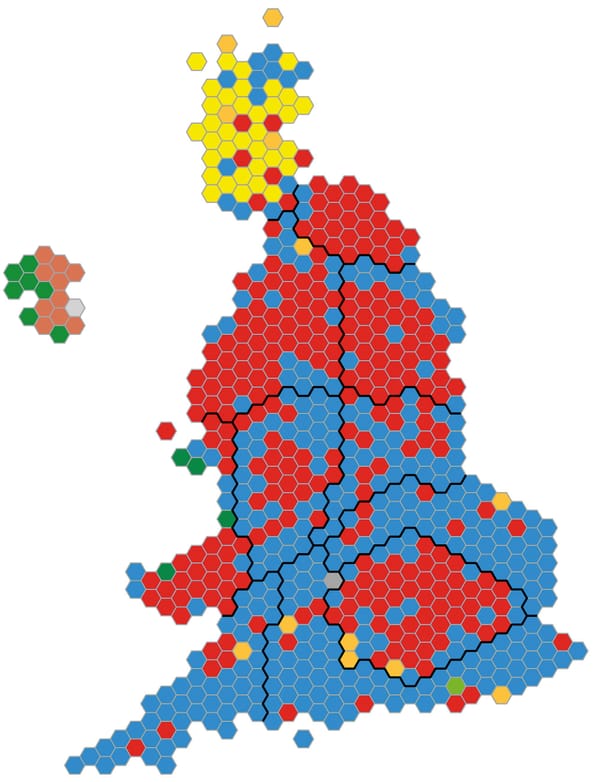What Will the UK be Voting On?
Arts Editor Eamon Farhat gives his perspective on what the UK electorate thinks is important

On December 12th, the British people will vote, but who and what are they voting for? Are they voting for thorough policies outlined in a manifesto or headline ideas performed on TV? Is it about the local candidate in their constituency or the celebrity like figure who leads that party?
This week, the election campaign has trudged on and some important events have taken place: TV debates and manifesto launches. We have had the first of a series of debates and interviews with party leaders going head to head, under the spotlight for millions at home to see. We have also been treated with hundreds of pages of manifestos to not read from all the major parties, outlining policies and pledges.
For politicians, these manifestos might seem hugely important and it is true that key policies in the past have swayed voters but in a post-truth era, is this all changing? Many voters do not believe a word a politician says, writes or even carves onto a stone tablet. This does not necessarily mean that they won’t vote for them, but whether they pledge 10 or 100 billion on the NHS, the voters will take it all with a pinch of salt. This is partially due to the fact that so many election pledges in recent years have been broken. These broken promises range from university tuition fees to the NHS, and from immigration targets to air quality. Wide reaching broken promises mean that trust has been broken across all demographics.
This dangerous cycle is self-fulfilling. As less people believe pledges, the less politicians will work to complete their pledges. If the public already believes the policies will never be carried through, the repercussions for that are not as harsh. For this reason, I believe it is really important to read manifestos and try to understand what areas different parties put importance on.
When voters put their X in the box on a cold night in December, it won’t be a Party or a manifesto they are voting for but a local candidate. Most people take little notice of this person and look instead at the party leaders. These are the people who could become our nations prime minister. For some, it is the qualities of this person, whether it be leadership or trustworthiness, that matters most. All the leaders will use their public appearances and TV performances to try and shine a light on these characteristics. For example Boris Johnson repeating his Brexit mantra 35 million times to show he is a man of conviction. Jo Swinson showing strong leadership… of her finger as she presses the red button for nuclear annihilation. The way the leaders interact with the moderators, audience and of course their opponents gives a unique insight into their temperament. Even when asked the toughest questions, will they keep their cool?
Despite the temptation of focusing on circus of all of it, I believe a party should be judged on its policies past, present and future. The manifestoes help paint part of the but must be put into context with the party’s recent history. However, does this mean that the behaviour and characteristics of each leader is not important? I do believe that in the current age of popularism, these factors are often overstated but there is some weight that should be given to them. The language and rhetoric used by the leaders is definitely one. Boris Johnson’s comments about Muslim women looking like letter boxes and bank robbers or calling members of the LGBTQ+ community bum boys are examples. These are not policies, but rather point towards the beliefs and values held by the Conservative leader. Furthermore, the rampant spreading of fake news and the tendency to understate the truth by top politicians is definitely something to watch out for. Trustworthiness is becoming a rare thing, but we must not accept to be fed straight lies and must reject anyone who peddles them.
Overall, this election should be about a wide range of policies and the general direction that different parties want to push the country towards. For example, Labour pledge 28 pounds for every pound the Tories do towards public services. Reading manifestos in the context of the party’s past performance is key to do this. As the media whips of a storm about each leader’s performance during interviews and debates, it is important to take a step back and really remember that policy is always more important than this pageantry. The next leader of our nation
Finally, a political piece written in the post-Cameron era would not be complete without a little mention of Brexit. This election is of course being viewed by some as a quasi-referendum, and thus for them all that matters is a party’s position on Brexit. Not what the manifesto outlines on paper or what the leader says on stage. Although I believe that Brexit should play a part in the decision, it should only be part of a bigger picture when determining who to vote for.









